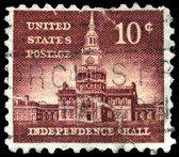CHAPTER BYLAWS OF THE PHILADELPHIA CHAPTER OF THE AMERICAN ASSOCIATION OF
HEALTHCARE ADMINISTRATIVE MANAGEMENT
I. Name. The name of this association shall be the Philadelphia Chapter of the American Association of Healthcare Administrative Management (hereinafter ‘Association’).
II. Purpose. The purpose of the Association shall be to:
(A) Promote and encourage the recognition of patient account management as an integral part of financial management throughout the healthcare industry.
(B) Encourage the implementation of effective and efficient business and receivables management policies and procedures in the healthcare industry.
(C) Stimulate and encourage an exchange of information among membership.
(D) Develop and encourage the implementation of programs for the purpose of furthering the education and increasing the knowledge of the membership in the healthcare industry.
(E) Develop and implement such programs that may add knowledge to and encourage the development of persons new to the healthcare industry.
(F) Establish standards of performance for persons who participate in or are involved in the management of patient accounts of any healthcare facility.
(G) Cooperate with other healthcare organizations, institutions and other related agencies.
II. Membership. The membership shall be composed of various classes.
(A) Membership Types/Qualifications
(1) A Local Member shall be an individual who has been accepted for membership; has paid their dues and fees; has an interest in healthcare business management, patient finance, or accounts receivable management.
(2) A National Member shall be one who is a member of the American Association of Healthcare Administrative Management (“AAHAM”) as well as a local member. In the event the Association is not affiliated with AAHAM, this designation shall terminate and these members shall be designated Local Members.
(3) A Life Member is a current or past Local Member of the Association who has been voted life member status by majority vote of the Board of Directors. No annual Association dues shall be assessed to a Life Member.
(B) Transferability. Memberships are on an individual basis and shall not be transferable to another person. Membership type and status will automatically change when the individual’s qualifications change.
(C) Rights and Duties of Membership. All Local Members and National Members shall have the right to vote in all elections and on all matters brought before the members for vote. Only National Members shall be eligible to hold elected office. In the event the Association is not affiliated with AAHAM, all Local Members shall be eligible to hold office. A Life Member shall share all rights and duties of membership, except to hold elected office and to vote.
II. Dues and Fees.
(A) Annual dues shall be paid to the Treasurer (or, with the approval of the Board of Directors, the Treasurer’s designee) by the beginning of the calendar year in an amount to be established by the Board of Directors from time to time by the first day of the calendar year.
(B) The Board of Directors may impose a new membership application fee, in an amount to be determined from time to time, which shall accompany the application.
(C) New applications for membership, accompanied by the proper amount of dues and fees, received after September 30th shall constitute payment for the remaining portion of that membership year and for the following membership year.
III. Membership Meetings
(A) A meeting of all members shall be held at least annually at such time and place as the Board of Directors may select. Notice and purpose thereof shall be sent to each member by any method permitted by the Pennsylvania Nonprofit Corporation Law at least thirty (30) days prior to such meeting.
(B) Special meetings of the members shall be called by the President at any time by written request of at least twenty (20) Local or National Members. The request shall state the purpose of the proposed meeting. Notice of such meeting and its purpose shall be sent by any method permitted by the Pennsylvania Nonprofit Corporation law, at least thirty (30) days before the date set for the meeting. No business other than that specified in the request and notice for the meeting shall be transacted at a special membership meeting.
(C) The presence in person of twenty (20) Local or National members or twenty percent (20%) of the members in good standing, whichever is less, shall constitute a quorum at all membership meetings.
(D) A quorum being present at any membership meeting or special meeting of the members, a simple majority of those voting shall constitute the act of the Association, unless otherwise required by these Bylaws.
(E) All notices of meetings shall be sent to members by any method permitted by the Pennsylvania Nonprofit Corporation Law at their address as it appears on the records of the Association.
(F) At any membership meeting, the President may take a voice vote, hand count, or secret ballot vote on any issues brought before the members. No proxy voting will be permitted. Any member not agreeing with a voice vote determination may demand that a hand count or secret ballot vote be taken immediately.
(G) The Secretary will be responsible for receiving, counting and reporting member votes or ballots.
IV. Board of Directors.
(A) The Association shall be governed by a Board of Directors composed of not more than fifteen (15) directors and not less than ten (10) directors. The number of the Board of Directors shall be determined by the Board of Directors. Regular meetings of the Board of Directors shall be held at least four (4) times a year at such place and time as the Board shall fix. Notice of regular meetings shall be sent to Directors at their street address or e-mail address at least seven (7) days in advance of the meeting.
(B) The primary responsibilities of the Board of Directors shall be implementing the mission of the Association and managing the affairs of the Association. Each Director is required to discharge these duties in accordance with the fiduciary obligations established by law.
(C) At all meetings of the Board of Directors a quorum shall consist of fifty percent (50%) of the Directors. A Director is deemed present if he/she participates in a meeting by telephone or via a video or audio link and is able to hear and be heard by all others present. If a quorum is not present, a lesser number may adjourn the meeting to some future time, not more than ten (10) days later, or they may postpone all action until the next regular meeting.
(D) At all meetings of the Board of Directors at which a quorum is present, a vote of a simple majority of the Directors present shall be the act of the Board of Directors, unless otherwise provided in these Bylaws.
(E) Vacancies in the Board of Directors for any cause other than the expiration of a term may be filled for the unexpired portion of the term by the Board of Directors at any of its regular meetings.
(F) If, for any reason, any Director ceases to be a Local or National Member, that person shall thereupon cease to be a Director.
(G) Any Director may be removed for cause by a vote of two-thirds (2/3) of those present at any regular or special meeting of the Board of Directors, provided that written notice of the meeting and of the proposed removal shall have been given to each Director at least ten (10) days prior to the date of the meeting. Removal ‘for cause’ shall include absences from three (3) or more consecutive regular Board meetings without reasonable excuse.
(H) There shall be an Executive Committee chaired by the President and composed of the Officers and such other Directors as the Board of Directors shall designate. A quorum of the Executive Committee shall consist of one-half of the committee members. The Executive Committee shall have the power to act on behalf of the Board between meetings of the Board when such action is necessary or appropriate. Such action shall constitute the action of the Board, subject to the Board’s power to rescind such action at its next meeting. Under no circumstances may the Executive Committee fill vacancies on the Board or among the Officers, amend the Bylaws or the Articles of Incorporation, amend or repeal any Board resolution, or act on matters not previously approved by the Board which would involve an expenditure in excess of $2,500.
V. Officers.
(A) The elected officers of the Association shall be a President, a First Vice President, a Second Vice President, a Secretary and a Treasurer. All officers shall be Members of the Board of Directors.
(B) The duties of the Officers are as follows:
(1) President: Will act as the Chief Operating Officer of the Association, preside at all general membership meetings, be an ex officio member of all committees (except the Nominating committee), call membership and special meetings, execute policy and provide leadership to the membership. The President shall consult with the Executive Committee and Board of Directors and keep them fully informed on all Association activities.
(2) First Vice President: Shall perform the duties of the President in the President’s absence, shall be responsible for all programs, educational, legislative and reimbursement activities of the Association.
(3) Second Vice President: Shall perform the duties of the First Vice President in his or her absence, shall be primarily responsible for membership-related activities, such as, but not limited to, membership, publication, job box, awards, and directories.
(4) Secretary: Shall notify membership of scheduled meetings, maintain all records and history of the organization, maintain minutes of the Board of Directors and Membership meetings, tabulate and validate all election results and membership votes.
(5) Treasurer: Shall be responsible to account for all monies and expenditures of the Association according to generally accepted accounting practices and the direction of the Board, receive and deposit all monies, make all cash disbursements, act as the financial watchdog for the Association, develop and propose to the Board revisions to the guidelines for expenditures, prepare and submit quarterly and special financial reports to the Board, supervise biennial audits, file tax returns as required and serve as an ex officio member of the Ways and Means Committee.
(C) Any Officer may be removed for cause by a vote of two-thirds (2/3) of those present at any regular or special meeting of the Board of Directors, provided that written notice of the meeting and of the proposed removal shall have been given to each Director at least ten (10) days prior to the date of the meeting. Removal ‘for cause’ shall include absences from three (3) or more consecutive regular Board meetings without reasonable excuse.
(D) Any vacancy occurring in any office of the Association shall be filled by the Board of Directors at its next meeting. In the interim, the President may designate any other member of the Executive Committee to perform the functions of that office. If a vacancy occurs in the office of the President, the Executive Committee shall designate a Vice President to serve as Acting President until the next meeting of the Board.
V. Term of Office for Officers and Board Members.
(A) Elections for officers and board members shall be held biennially, prior to the end of even numbered years.
(B) The term of all officers and directors shall be two (2) years.
(C) New Officers and Board members will assume their responsibilities on the first day of odd numbered years, following their election.
(D) Nominations will be by a Nominating Committee and chairperson appointed by the Executive Committee prior to September 1 of even numbered years for the purpose of nominating candidates and accepting nominations from the members for all offices and board positions scheduled for election that year.
(E) The Nominating Committee shall submit to the Board of Directors a written list of nominated candidates (one or more) for each office and board position scheduled for election, prior to October 1 of even numbered years.
(F) Additional nominations from among the members of the Association may be made by nominating petitions signed by at least five (5) Members and delivered to the Secretary of the Association not later than October 1 of even numbered years. The Secretary shall notify members of their right to make nominations between August 1 and September 1 of even numbered years. Notice shall be given to Members by e-mail and by posting on the home page of the Association’s web site.
(G) Directors and Officers shall be elected by any method permitted by the Pennsylvania Nonprofit Corporation Law. The method shall be determined by a vote of the Board of Directors.
(H) If, after the time for nominating Officers, any offices are uncontested, the Secretary shall cast a unanimous ballot for the nominees and they shall be declared to be elected.
(I) If, after the time for nominating Directors has expired, the number of nominees does not exceed the number of Directors to be elected, the Secretary shall cast a unanimous ballot for the nominees, and they shall be declared to be elected.
(J) In the event of a contested election for any Officer, the Secretary shall prepare ballots bearing the names of all persons duly nominated and shall disseminate one ballot to each member. The persons having a plurality of the votes cast shall be elected. In the event of a tie vote, the winner shall be determined by a toss of a coin.
(K) In the event of a contested election for any Director, the Secretary shall prepare ballots bearing the names of all persons duly nominated and shall disseminate one ballot to each member. The persons having the most votes cast until all Director positions are filled shall be elected. In the event of a tie vote, the winner shall be determined by a toss of a coin.
(L) The Secretary shall be responsible for receiving, tabulating, validating and recording all ballots. The tabulated election results and the original ballots will be turned over to the Board of Directors.
(M) The Board of Directors will be responsible for final validation and announcement of election results. Announcement shall include posting on the Association’s web site.
(N) The final authority on all election results will be the Board of Directors.
VI. Committees.
(A) Standing Committees and Responsible Officer
(1) Education – First Vice President
(2) Program – First Vice President
(3) Reimbursement – First Vice President
(4) Certification Accreditation – Second Vice President
(5) Membership – Second Vice President
(6) Publications – Second Vice President
(7) Ways and Means – Treasurer
(B) Nominating Committee – Shall be appointed every two years by the Executive Committee as specified under nominations section of these Bylaws.
(C) Special Temporary Committees – The President, may, from time to time, find it prudent to establish committees to handle various types of Association business. The President may appoint and terminate these committees at his or her discretion.
VII. Finances.
(A) Prior to issuing any check in excess of $2,000, the Treasurer shall obtain written approval of the President.
(B) No later than May 1, the Treasurer shall annually publish a summary of the Association’s financial to the Members on the Association’s web site.
VIII. Association with Other Associations.
(A) The Philadelphia Chapter of the American Association of Healthcare Administrative Management shall designate itself a chapter of the American Association of Healthcare Administrative Management, and, as a chapter, it will participate in the functions and activities of AAHAM.
IX. Limitation of Liability, Indemnification and Insurance.
(A) A Director shall not be personally liable for monetary damages for any action taken, or any failure to take action, unless the Director has breached or failed to perform the duties of his or her office under Section 5713 of the Nonprofit Corporation Law of 1988, as amended, 15 Pa.C.S. 5713 (relating to standard of care and justifiable reliance), or any successor provision, and the breach or failure constitutes self- dealing, willful misconduct or recklessness. This provision shall not apply to the responsibility or liability of a Director pursuant to any criminal statute or the liability of a Director for payment of taxes pursuant to local, state or federal law.
(B) Indemnification – The Association shall indemnify any Officer or Director (or employee or agent designated by a majority vote of the Board of Directors to the extent provided in such vote) who was or is a party or is threatened to be made a party to any threatened, pending or competed action, suit or proceedings, whether civil, criminal, administrative or investigative (including action by or in the right of the Association) by reason of the fact that he or she is or was a Director or Officer of the Association, against expenses (including attorneys’ fees), judgments, fines and amounts paid in settlement actually and reasonably incurred by him or her in connection with such action, suit or proceeding. Indemnification pursuant to this Section shall not be made in any case where the act or failure to act giving rise to the claim for indemnification is determined by a court to have constituted self- dealing, willful misconduct or recklessness. Expenses incurred by an Officer or Director purportedly indemnified by this Section in defending a civil or criminal action, suit or proceeding may be paid by the Association. The indemnification and advancement of expenses provided by, or granted pursuant to, this Section shall continue as to a person who has ceased to be a Director or Officer of the Association and shall inure to the benefit of the heirs, executors and administrators of such person.
(C) Insurance – the Board of Directors may authorize, by a vote of a majority of the entire Board, the Association to purchase and maintain insurance on behalf of any person who is or was a Director or Officer of the Association against any liability asserted against and incurred by such person in any such capacity, or arising out of such person’s status as such, whether or not the Association would have the power to indemnify him or her against such liability under the provisions of this Article. Furthermore, the Association may create a fund of any nature, which may, but need not be, under the control of a Director, or otherwise secure or insure in any manner its indemnification obligations referred to in this Article.
X. General Provisions.
(A) Construction of Powers. Unless these Bylaws expressly or by clear construction or implication so provide, nothing contained in these Bylaws is intended to or shall limit, qualify, or restrict any powers or authority granted or permitted to nonprofit corporations by the Pennsylvania Nonprofit Corporation Law of 1988, as amended.
(B) Conflicts of Interest. It is recognized that occasions may arise when a member of the Board of Directors or an Officer of the Association has a financial interest in a contract or transaction upon which action is to be taken or withheld by the Board or a committee thereof. It is the policy of the Association and of its Board that:
(1) Any material facts as to such financial interest shall be disclosed by such Director or Officer or to the members of the Board or Committee.
(2) The Director or Officer having such financial interest on any matter shall not vote or use any personal influence in regard to the matter (except that he or she may state a position on the matter and respond to questions about it); however, such Director of Officer may be counted in determining the quorum for the meeting at which the matter is voted upon. The minutes of the meeting shall reflect that the disclosure was made and that such Director or Officer abstained from voting.
(3) No contract or transaction in which a Director or Officer has a financial interest shall be knowingly entered into by the Association unless it has been authorized in good faith by the Board of Directors pursuant to Section 5728 of the Pennsylvania Nonprofit Corporation Law of 1988, as amended, 15 Pa.C.S. 5728.
(C) Waiver of Notice. Whenever any notice is required to be given under the provisions of the Pennsylvania Nonprofit Corporation Law of 1988, as amended, or these Bylaws, a waiver thereof in writing signed by the person or persons entitled to said notice, whether before or after the time stated therein, shall be deemed equivalent to the giving of such notice. Neither the nature of the business to be transacted or the purpose of the meeting need be specified in the waiver, except that a waiver for a special meeting shall specify the general nature of the business to be transacted. Attendance of a person at any meeting shall constitute a waiver of notice of such meeting.
(D) Records. An original or duplicate record of the proceedings of the Board of Directors and other bodies, the books or records of account, and the Bylaws, shall be kept by the Secretary.
XI. Amendments.
(A) These Bylaws may be amended or repealed by the vote of two-thirds of the Directors present at any regular or special meeting of the Board if the notice of the meeting specified the action to be taken and was given at least thirty (30) calendar days before the meeting.
(B) These Bylaws may be amended or repealed upon petition of the members in accordance with the procedure set forth in this subsection. The petition to amend the Bylaws must identify with specificity the language to be added, deleted or altered and shall be signed by at least five percent (5%) of the Members as determined by reference to the current membership roster. Each Member on the petition must list his or her name, address used for purposes of the Association’s membership, and current phone number or e-mail address. Upon verification of the petition’s signatures and satisfaction of the five percent (5%) requirement, a meeting of the members shall be convened with at least sixty (60) days notice to the Members of the meeting’s location, time, and purpose. The Members in attendance shall be permitted to revise the proposed Amendment by majority vote. A vote of two-thirds of those in attendance at a duly convened meeting of the Members for the purpose of amending the Bylaws shall be sufficient for adoption of the specified or revised Bylaw amendment.
(C) Dissolution. Upon dissolution of the Association, assets shall be distributed for one or more exempt purposes within the meaning of 501(c)(6) of the Internal Revenue Code, or corresponding section of any future federal tax code, or shall be distributed to the federal government, or to a state or local government, for a public purpose.



